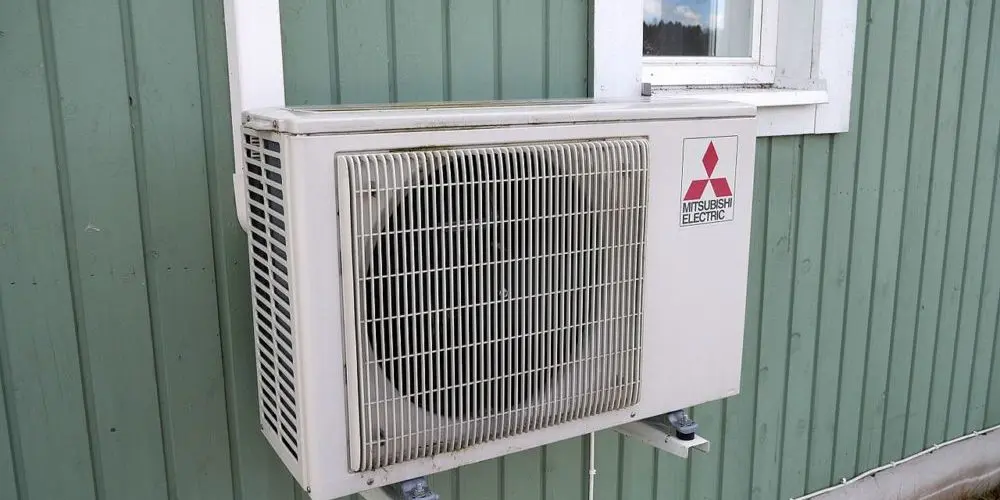Lack of transparency feeds skepticism of Massachusetts’ clean heat commission
Massachusetts climate advocates are hopeful but not yet convinced that a first-in-the-nation state Commission on Clean Heat will result in adequate policies for transitioning buildings from fossil fuels.
Gov. Charlie Baker signed an executive order establishing the commission in September. In the months that followed, the administration shared little about the process of assembling the panel, declining even to identify its members until the group was sworn in and met for the first time on Jan. 12.
Following the commission’s first closed-door meeting, many advocates are left wary of the group’s makeup, transparency, and timeline.
“I remain hopeful that the commission will use its opportunity to address the climate crisis and push the commonwealth away from more reliance on fossil fuels in equitable ways,” said Amy Boyd, director of policy at the nonprofit Acadia Center. “But I think it may take a lot of work to get there.”
Building use of fossil fuels, for purposes such as heating and cooking, accounts for 27% of Massachusetts’ greenhouse gas emissions and poses a major challenge to the state’s attempts to slash emissions in half by 2030 and go carbon-neutral by 2050.
As part of this process, at the end of 2020, the Baker administration released a decarbonization roadmap outlining strategies for reaching this goal, including tighter building envelopes and widespread adoption of electric heat pumps. Among the goals detailed in the report is a target of retrofitting 100,000 homes with electric heat pumps each year, but a recent Boston Globe investigation found just 461 homes were converted in 2020.
The commission is tasked with helping translate the administration’s strategies into concrete policy ideas that will help accelerate this progress. The panel is expected to meet regularly for several months with the goal of submitting its recommendations to the administration by Nov. 30, shortly before Baker, who is not running for re-election, hands over the reins to a new, incoming governor.
Environmental advocates universally praised the goals of the commission and expressed sometimes precarious optimism that the group could have an important impact on emissions reductions.
“I am hopeful that they can get to work and that they can come up with some really path-breaking recommendations that lead to the decarbonization of that sector,” said Elizabeth Turnbull Henry, president of the Environmental League of Massachusetts.
Still, advocates are keeping a wary eye on the commission’s progress.
When Baker announced the formation of the commission, he promised a group that would have a “diversity of experience.” The 21 members revealed in January are drawn from a range of industries and backgrounds, including utilities, building, finance, real estate, housing, urban planning, energy, and technology.
However, some environmental advocates are not sure the promised diversity is there. One member is an expert on green building, another has experience retrofitting houses for greater energy efficiency, and another has long worked on clean energy policy, but these environmentally leaning members are far outnumbered by other interests, advocates worry.
“I’m disappointed to see that the sectors most represented on the commission are business and fossil fuels, rather than consumers, environmental justice communities, or building electrification experts,” Boyd said.
Other advocates expressed concern that a commission could produce great recommendations that just don’t go anywhere. Henry pointed to the Commission on the Future of Transportation, established by Baker in 2018.
The group’s December 2018 report included a range of policy suggestions, such as modernizing public transportation, considering congestion pricing, and upgrading the electric grid to support wider adoption of electric vehicles. At the same time, however, it skirted the question of how to pay for the initiatives outlined and didn’t include any mechanisms for driving action or holding policymakers accountable, Henry said. So this time around, she is hoping the clean heat commission will make questions of funding and implementation central to their work.
“Massachusetts has a long history of grandiose commissions that yield little in terms of actual policy progress,” Henry said. “I am really going to be looking at the quality of the recommendations and the actionability.”
Larry Chretien, executive director of the Green Energy Consumers Alliance, is also concerned about the commission’s commitment to laying out effective policy specifics. Chretien would like to see the group engage deeply with the public, sharing ideas, listening to feedback, and releasing a draft of its recommendations before its November deadline, so it can hear back from stakeholders before making its official report to the administration.
This kind of robust engagement, he said, will help create a plan with strong enough public backing to survive a change of leadership when a new governor takes office in January 2023.
“If they come out with something in November, and the governor-elect doesn’t like it, and there hasn’t been enough public comment, it will have been a wasted year,” Chretien said.
For some advocates, the commission’s timeline is dragging out an already lingering process at a time when the climate crisis is ever more urgent. Ben Hellerstein, state director of Environment Massachusetts, wondered why the state is just now convening the commission, nearly three years after it began working on the climate roadmap in 2019.
Hellerstein would like to see more action right away, rather than another 10 months of meetings and debates.
“We have the technologies to reduce energy waste and heat our buildings with clean electricity, and there are plenty of policy ideas out there,” Hellerstein said. “Studies and commissions are nice, but if we have to choose I’d rather spend less time confirming what we already know, and more time on the action that’s urgently needed.”
Read the full article in Energy News Network here.



















